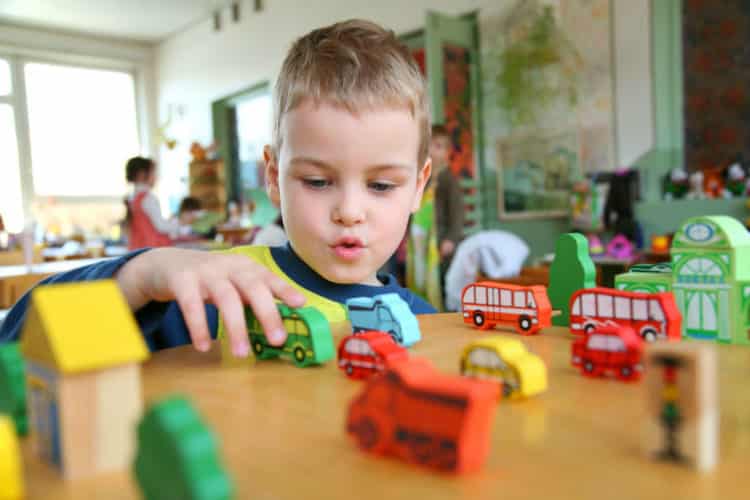For advice from experts, read Expert Advice to Prepare your Child for Daycare.
Transitioning a child to daycare is not easy! Here is some advice to help:
- During the first days, stay with your child for a short period to help them get accustomed to new places and faces
- Start progressively with short stays, starting at least one month before going back to work if possible. If you can’t begin slowly, babies are very adaptable. Usually, after a week they will be fine, and the daycare workers are skilled at welcoming and comforting new infants.
- Prepare your child for daycare, talk about it to them, tell them how long they will be there, describe the steps – wake up, have breakfast, grab the daycare bag, bring a stuffed animal, mom or dad will go with you.
- At the start, tell them you will stay with them for one hour and then will leave together. Depending on their reaction, stay for shorter periods. Develop a separation routine and follow it to make your child feel safe. When they remain at daycare alone, leave them for a couple of hours 2-3 times a week. A half-day is usually perfect. Take time for yourself during this period. A parent that meets their own needs can give more to their family, child and partner.
- If the baby cries when you leave, don’t feel guilty! Tell yourself that your child will have to adapt throughout their life, and you are helping them become strong by reassuring them you love them, that you will come back and that you care for them. Crying doesn’t mean that they don’t like daycare. It’s a normal reaction during the first days of adaptation.
- Don’t draw out your departures when you arrive with your child at daycare. Do your separation routine and leave! The longer you wait, the more you will worry, and it will become more and more difficult. Usually, once you are out of sight, children will focus on other things, having fun with their friends or daycare worker.
- Parents, if you need reassurance after you leave, call the daycare worker to see how they reacted to your departure and how they are doing now.
- Leave a family photo or favourite stuffed animal or piece of clothing. This can help your child if they feel sad during the day.
- Reactions can easily last 1-2 weeks. Some will not react at all at the start, yet one month later panic. Continue with the routine and leave like usual. Don’t forget, routine and set behaviour will allow your child to feel secure!
- When you are with your child, make sure the time you spend with them is special.
- Try to return to pick up your child at the same time. This will teach them to develop notions of time. For example, they will understand that when the nap is over, and they had a snack, dad will come and pick them up. This makes them feel secure.
- Don’t worry if your child doesn’t want to go back home with you at the end of the day. They still love you! Your child may be in the middle of a game and wants to finish it. They will then be happy to see you and return home. Don’t feel guilty for not having been with them during the day. If they don’t want to leave, it’s a sign that they love their daycare and their reaction should be reassuring, not worrying.
The Importance of Communication:
For both parents and children, starting daycare is a significant step that requires both to adapt. Throughout the time your child will go to daycare, communication is the key to success between you and daycare workers. You need to develop a collaborative relationship with those that care for your child.
If something happens in your family that can affect your child, notify the daycare workers so they can understand and better assist your child and their reactions. The same thing if they seem sick, haven’t eaten or slept poorly, etc. You should also talk to them about your concerns and tell them about the changes you have seen in your child. Ask them questions.
I hope this advice will help you transition to daycare with your child in a very positive way.
Talk soon,
Marie
The Baby Expert



